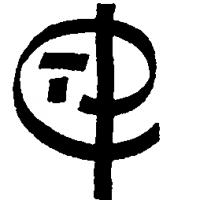Сообщений: 111
Язык: Esperanto
LM59650 (Показать профиль) 14 апреля 2020 г., 9:10:03
PrimeMinisterK:I also don't like very much this use.Zam_franca:I mean, maybe Esperanto's just weird like that, but it seems that there needs to be some indicator of a possessive. Ĉe being translated as "at" (at anything . . . at the bus stop . . . at the restaurant) but also being translated specifically as "at the house of" seems very random to me.
Could we translate "Mi estas ĉe Marko" by "I am at Marko's"?
And particularly, "ĉe mi" is not a good translation of "at my home" / "at my house" ("chez moi" in French). "miahejme" is better.
Metsis (Показать профиль) 14 апреля 2020 г., 10:58:02
3. I admit that I'm a half-geek, but I still don't understand.
7. Yes, "parenteze" would have been ok.
8. archaic words
Use of -ujo for tree is definitely archaic, pomo → pomujo, contemporary pomarbo, arbo de pomoj. Some people consider using of -ujo for countries is archaic, problematic and therefore prefer –io forms, e.g. instead of Germanujo use Germanio.
The letter ĥ is about to be phased out, ĥemio → kemio and so on.
9 "la tagmanĝo"
For some reason the meals mostly have the definite article, so "la matenmanĝo, la tagmanĝo kaj la vespermanĝo". For me articles are mostly a mystery, I spontaneously don't associate any meaning with them, they are just dummy words.
Let's take another article example, this time from Duolingo. You want to say "My eyes hurt for some reason". You can say "miaj okuloj" or the Romanence-language(?) way with the definite article "la okuloj". "For some reason" is trivial, it's "ial". For hurting you can simply say "doloras" or again with the Romanence-language(?) way "doloras al mi" (as if there were some pain that must be directed to me using that dative like expression).
I thought that if you already established that the question is about my eyes with miaj okuloj, then you just use doloras. And if you leave the owner of the eyes open by la okuloj, then you must specify that person by doloras al mi. I.e. only
- Miaj okuloj ial doloras
- La okuloj ial doloras al mi
- Miaj okuloj ial doloras
- Miaj okuloj ial doloras al mi
- La okuloj ial doloras al mi
- La okuloj ial doloras
sergejm (Показать профиль) 14 апреля 2020 г., 11:41:43
PrimeMinisterK:You can say 'Ni portis sandviĉojn por tagmanĝo' without 'la'.sergejm:Use 'la' then you use 'the' in English.lt's the exceptions that I'm talking about. Consider the example I used earlier:
With some excepions, e. g.:
la nova = new one
"Ni portis sandviĉojn por la tagmanĝo."
In English we would never use "the" in an instance like this.
In this case, 'la' is uzed instead of 'nia' = 'our'.
More exception: 'la mia' = 'mine'
PrimeMinisterK (Показать профиль) 15 апреля 2020 г., 7:10:15
Metsis:1. I can't see anything weird at "Mi estas ĉe Marko" (fi "Olen Markon luona", sv "Jag är hos Marko", de "Ich bin bei Marko").I just read it as, "I am at Marko," since ĉe is usually translated simply as "at." Even if you say, "I am at Marko's," I'd say "Marko's what?" His house? Marko's restaurant down on the corner? Marko's place of business?
But I guess I'll just have to remember it sometimes means "at the home of."
Metsis:8. archaic wordsI don't get it though. Why not just accept the words that Zamenhof and his contemporaries created? Why complicate things by declaring some terms "archaic" and manufacturing new words that mean the same thing? There's something annoying to me about that.
Use of -ujo for tree is definitely archaic, pomo → pomujo, contemporary pomarbo, arbo de pomoj. Some people consider using of -ujo for countries is archaic, problematic and therefore prefer –io forms, e.g. instead of Germanujo use Germanio.
I like to think of Esperanto as a language that, except for the invention of new words to correspond to new realities as society moves forward, is essentially a fixed language, and that the Esperanto of today will be the Esperanto of a thousand years from now. After all, if not, how can it avoid a lot of the problems that we find in the natural languages?
Metsis:The letter ĥ is about to be phased out, ĥemio → kemio and so on.This though I can't exactly argue against. I can't imagine having to pronounce one if these words in an actual conversation. I'd have to come to a dead stop just to try to form the word correctly. I do not actually see many words at all with this letter though. In fact, the only time I can remember seeing it is in some of the names of books in the Biblio.
Metsis:9 "la tagmanĝo"Okay, meals. That's good to know. I'll have to keep that in mind.
For some reason the meals mostly have the definite article, so "la matenmanĝo, la tagmanĝo kaj la vespermanĝo". For me articles are mostly a mystery, I spontaneously don't associate any meaning with them, they are just dummy words.
Let's take another article example, this time from Duolingo. You want to say "My eyes hurt for some reason". You can say "miaj okuloj" or the Romanence-language(?) way with the definite article "la okuloj". "For some reason" is trivial, it's "ial". For hurting you can simply say "doloras" or again with the Romanence-language(?) way "doloras al mi" (as if there were some pain that must be directed to me using that dative like expression).
I thought that if you already established that the question is about my eyes with miaj okuloj, then you just use doloras. And if you leave the owner of the eyes open by la okuloj, then you must specify that person by doloras al mi. I.e. only
would be valid. What I learned that these choices are independent and therefore you can have
- Miaj okuloj ial doloras
- La okuloj ial doloras al mi
of which the first is the most natural to me and the last one most strange, since it leaves unclear to me whose eyes feel pain.
- Miaj okuloj ial doloras
- Miaj okuloj ial doloras al mi
- La okuloj ial doloras al mi
- La okuloj ial doloras
You touch on something else that confuses me too though, and that's the use of "al." La and al both get used in places that, to me, seem random and unnecessary. I wish I had an example of the top of my head where al is used in a way that is confusing, but I'm drawing a blank. I think some of them might be a case of al being used with the infinitive, though. I actually had some similar problems when I was trying to learn Spanish so this is definitely a romance language thing.
Urho (Показать профиль) 15 апреля 2020 г., 9:35:03
Сообщение скрыто.
PrimeMinisterK (Показать профиль) 16 апреля 2020 г., 3:55:15
1 Explain to me the -enda ending. According to my material, this means "should or must be done." Examples include legenda and farenda, but it doesn't use them in a sentence. How are these words used?
2. How many vocabulary words are needed before you can read relatively smoothly and not have to run to the dictionary a few times each sentence?
3. I can't quite figure out the word "laŭ." How is this word used exactly?
Metsis (Показать профиль) 16 апреля 2020 г., 8:18:39
- La luprezo estas pagenda antaŭ la komenco de ĉiu monato : The rent is payable (=must be paid) before the beginning of every month.
- Tiu letero estas tuj respondenda : That letter requires immediate reply.
3. The word is directly from German and means along, according to, following, by. See PIV for examples.
PrimeMinisterK (Показать профиль) 16 апреля 2020 г., 10:09:20
Metsis:1. The ending -end- is almost exclusively used in adjective form -enda. It's actual use is quite rare. Examples from PIV:Hmm okay, thanks. This is one of those things that I can already tell isn't going to come naturally and will just require pure, blunt force drilling to get it into my head.
- La luprezo estas pagenda antaŭ la komenco de ĉiu monato : The rent is payable (=must be paid) before the beginning of every month.
- Tiu letero estas tuj respondenda : That letter requires immediate reply.
Metsis:2. La Zagreba metodo, on which Lernu's course is also based on, teaches you 500 most used roots and simple words (particles, prepositions) and the official affixes. That is sufficient for normal daily use. It also gives you a way to at least partially decipher more complex sentences.I have heard of La Zagreba Metodo and have even looked it up, but have not been able to get a clear explanation of exactly what it is.
Metsis:3. The word is directly from German and means along, according to, following, by. See PIV for examples.Okay, thanks. I'll have to try to decipher that over the next few days as I try to translate it all.
One question though: I have seen both "laŭ" and "de" used for authorship. For instance, "Hamleto laŭ Shakespeare" or "Hamleto de Shakespeare." Are these both correct and mean the same thing?
sergejm (Показать профиль) 16 апреля 2020 г., 10:54:19
PrimeMinisterK (Показать профиль) 16 апреля 2020 г., 11:09:25
sergejm:"Hamleto" estas de Shakespeare, ĉu ne? Zamenhof only translates it.Oh, right. I changed it.
Okay, throw out that example.
Carrie laŭ Stephen King or Carrie de Stephen King. Interchangeable?



